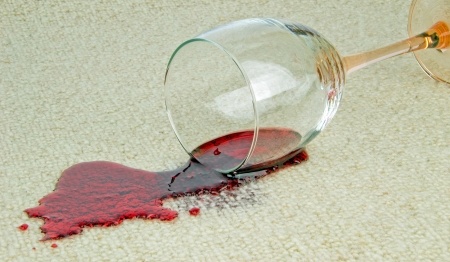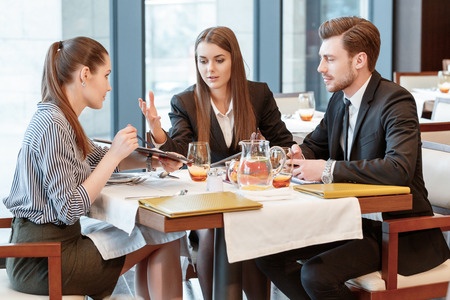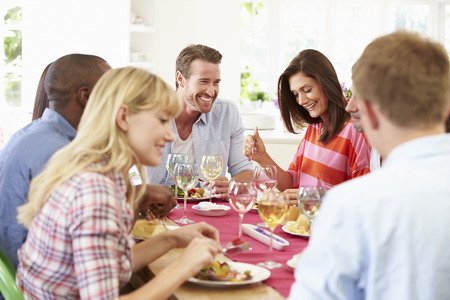How to Prevent Dinner Disasters
 Image Source: mistac; "A spilled glass of red wine on a carpet.", 2023. Accessed via https://www.123RF.com/photo_21677053, Standard License.
Image Source: mistac; "A spilled glass of red wine on a carpet.", 2023. Accessed via https://www.123RF.com/photo_21677053, Standard License.Dinner parties should be delightful occasions filled with good food, engaging conversation, and warm hospitality. Yet even the most carefully planned gatherings can take unexpected turns. Spilled wine, broken dishes, delayed caterers, or awkward moments can transform an elegant evening into a stressful situation. Knowing how to prevent common mishaps and handle the unexpected with grace is essential for both hosts and guests.
The secret to avoiding dinner party disasters lies in understanding the reciprocal expectations between hosts and guests. When everyone knows their role and fulfills it with thoughtfulness and courtesy, potential problems become minor hiccups rather than memorable disasters. Let's explore how etiquette knowledge and preparation can help you navigate any dinner party situation with confidence and poise.
The Host's Essential Responsibilities
As a dinner party host, you set the tone for the entire evening. Your primary responsibilities extend beyond simply providing food and drink. Your warm welcome at the door, your attention to guest comfort, and your ability to facilitate pleasant conversation all contribute to a successful gathering.
Proper preparation is your first line of defense against dinner disasters. This means planning your menu well in advance, confirming arrangements with caterers or vendors, and having backup plans ready. Set your table early, prepare as much food ahead of time as possible, and give yourself buffer time to handle unexpected delays.
When Things Go Wrong: The Host's Response
Even with meticulous planning, unexpected situations arise. Perhaps your caterer arrives late, a dish burns in the oven, or you realize you're short on glassware. The key is maintaining your composure and projecting calm confidence. Your guests will take emotional cues from you — if you remain relaxed and upbeat, they will too.
When faced with a dinner disaster, think creatively and act decisively. If dinner is delayed, assemble an impromptu appetizer spread from pantry staples like cheese, crackers, nuts, and olives. If a course fails completely, acknowledge it with humor and move forward. Your guests care more about your company than perfection, and your gracious handling of mishaps will be remembered far longer than the mishap itself.
Remember that you control the atmosphere. A genuinely warm host who encounters problems but handles them with grace creates a more memorable evening than a stressed perfectionist presiding over a flawless but tense dinner.
Guest Etiquette: Your Role in Dinner Party Success
As a guest, you play an equally important role in preventing dinner disasters. Your responsibilities begin before you even arrive. Respond promptly to invitations, arrive on time (but not early), and come prepared to engage positively with others.
Table manners aren’t about being stuffy — they’re about making the meal enjoyable for everyone. Use your utensils properly, keep your elbows in check, and be mindful of the space you’re taking up. Remember, the table’s for sharing, not for space invaders.
Contributing to pleasant conversation is crucial. Show genuine interest in others, ask thoughtful questions, and share appropriately. Avoid controversial topics, monopolizing conversations, or using your phone at the table.
Handling Accidents as a Guest
Despite your best efforts, accidents happen. You might knock over a glass, drop food, or inadvertently offend someone. When disaster strikes, respond with immediate apology, genuine concern, and appropriate offers to make amends.
If you spill wine on another guest's clothing, apologize sincerely and offer to cover cleaning or replacement costs. If you break something valuable, take responsibility and offer restitution. If you make a conversational misstep, acknowledge it gracefully and move on. Your host will appreciate your accountability and maturity in handling the situation.
Most importantly, don't let your distress overshadow the evening. Apologize once sincerely, accept your host's response graciously, and move on. Excessive apologies or dwelling on mistakes can be more disruptive than the original accident.
The Partnership That Prevents Disasters
A great dinner is a shared effort. With preparation, hospitality, and courtesy, both hosts and guests can turn the evening into an enjoyable experience.
The foundation of this partnership is mutual respect and common courtesy. Understanding the expectations of your role — whether you're hosting or attending — helps you navigate any situation with confidence. And when uncertainty arises, let basic etiquette principles guide you: show respect, extend kindness, and remember that connection matters more than perfection.
With preparation, grace, and good manners, you can transform any potential dinner disaster into simply another story that adds character to an otherwise lovely evening.
You may also enjoy reading . . .














